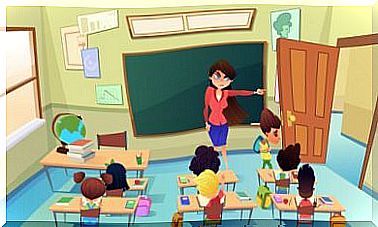What If My Child Does Not Want To Interact With His Classmates? – Being Parents
If your child is having trouble making friends, you can help them develop the skills to interact with other people appropriately. So you won’t have to say, “My child doesn’t want to interact with his classmates”.
4 ways to help a child interact with their peers
You can start by making your child feel comfortable around their peers without forcing them to act against their will. Then you need to be a role model by having good relationships with your friends.
Also, when talking with your child, it is good to always look them in the eye. You need to empathize and put yourself in his shoes. From these two key issues, we recommend other behaviors that may help.
Meet games at home
It is very likely that your child will feel motivated to interact with other children in their own home. This environment will be familiar to him and he will feel comfortable and confident.
Invite few children to social activities
If you are planning to have a party in the park or plan to take her to the pool, the best option is to invite few children. This way, your child won’t feel intimidated or pressured into talking to so many people at the same time.
Don’t put too much pressure on him
Forcing him to do something he doesn’t want isn’t going to help. Try to choose activities that the child prefers, or you can encourage them to choose them as well.
Encourage him to participate in recreational activities
These are good times for your child to be able to interact with other children their age. This can be through sports activities or in a dance or music academy, among others.
“When you talk to your child, look him in the eye. You have to empathize and put yourself in his shoes ”

What if my child is already a teenager?
Having good friendships offers a teenager benefits for his future. For this reason, motivate him to communicate with his classmates.
You should get used to having good communication with him and asking him questions to find out the cause that is preventing him from having friends. Encourage him to look for ideas to improve his personal relationships.
Also, help him put established ideas into practice. Take on the role of his classmates and try out different situations until he can have a smooth, friendly conversation.
You can make things easier for her by offering to take her and some of her classmates to social or extracurricular activities.
It will also be beneficial to have a friendship with the parents of your child’s classmates and participate in various activities together. This will give him the opportunity to strike up a conversation with some of them and even gradually join groups of his age.
Why doesn’t my child want to interact with his classmates?
Some children may be inhibited by expressing their opinions and downplaying their feelings and needs. They prefer to adapt to the wishes and opinions of other children, who quickly perceive their insecurity.
Another reason is that they may feel badly respected or have low self-esteem. This greatly affects the image they have of themselves.
Certain learning and attention problems can also make children unwilling to interact with their peers. In addition, language difficulties would prevent him from finding the appropriate words and expressing them correctly.
On the other hand, it can also be due to hearing difficulties that do not allow him to listen properly. For this reason, the child withdraws and does not engage in conversation with others.
My child does not want to interact with his classmates, how will he be affected by this?
Not being able to maintain friendships with their peers will have a negative effect on some children and young adolescents. This could lower their self-esteem, cause them to lose self-confidence and prevent them from participating in new activities.
They may also feel very sad because they think that no one can help them change this situation. They also feel that they cannot control their own feelings.

Help from professionals in this area
You can use this resource by talking to experts who offer practical advice on websites or books. There you will get the information you need to help your child develop social skills, strengthen them and be more resilient.
Teachers can be very helpful, especially if you present the situation clearly. You could say something like “My child does not want to interact with his colleagues, what actions can we take together?”
Therefore, they will take action. For example, try to get the child moving with a group of positive experiences or have him integrate with more sociable partners and with the availability to accept new friends.
With the suggestions in this article, your child will begin to socialize in ways that are less traumatic for them. The expression “my child does not want to be in relationship with his classmates” will no longer be the theme or the worry of every day.










